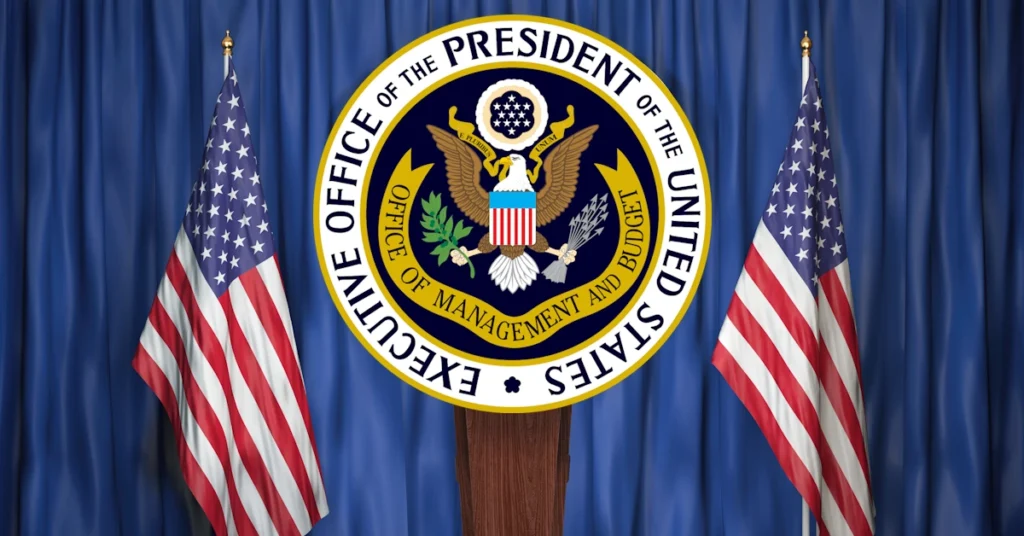The U.S. Office of Management and Budget (OMB) submitted President Donald Trump’s topline discretionary budget request for fiscal year 2026 to Congress. The proposal includes a US$163 billion, or 23 percent, reduction in non-defense discretionary spending compared to the FY 2025 enacted level. The federal administration has proposed a budget that reduces funding for the Cybersecurity and Infrastructure Security Agency (CISA) by approximately $491 million.
According to the administration, the budget aims to dismantle what it describes as a ‘weaponized deep state’ while delivering historic increases in funding for national defense and border security. Additionally, the budget outlines investments in air and rail safety, critical infrastructure, and support for veterans and law enforcement. Defense spending would increase by 13 percent, and appropriations for the Department of Homeland Security (DHS) would increase by $43.8 billion, nearly 65 percent, to ensure that the military and relevant agencies tasked with securing the border have the necessary resources to fulfill their mission.
The federal budget ends the previous administration’s weaponization of the government by eliminating programs like the CISA’s disinformation offices that targeted and censored Americans, eliminating so-called Fair Housing programs that waged war on America’s suburbs, ending the Environmental Protection Agency’s unfair harassment of citizens over ‘environmental justice’ directives, and halting the ATF’s criminalizing of gun-owning Americans and instead, focusing on stopping illegal firearms traffickers and violent gang members.
The Trump 2026 budget aims to refocus CISA on its core mission, such as defending federal networks and enhancing the security and resilience of critical infrastructure, while eliminating programs deemed duplicative, wasteful, or beyond its original scope.
The proposal calls for the removal of offices that overlap with existing programs at the state and federal levels. It also eliminates initiatives related to misinformation, propaganda, and external engagement, including international affairs.
According to the administration, these functions contributed to what it refers to as the ‘Censorship Industrial Complex,’ allegedly used to suppress free speech, target American citizens for protected expression, and undermine the President.
The 2026 budget asserts that CISA had drifted from its cybersecurity mission, prioritizing content moderation and public relations over the protection of national critical systems. The administration claims this shift led to mismanagement, inefficiencies, and increased risk to U.S. infrastructure.
In a briefing with reporters Friday, a senior OMB official said that the goal of the budget was to “make sure that CISA is actually in the business of cybersecurity, as opposed to disinformation funding and funding grants at the Department of Homeland Security and universities to combat and call extremist half the country who just care about normal conservative things.”
In January, the Trump administration reportedly dismissed members of its advisory committees, including the Cyber Safety Review Board (CSRB), which is responsible for investigating significant cybersecurity incidents. This action is part of a broader effort by the Trump administration to reduce costs within the agency.
President Trump extended in March the national emergency originally declared in April 2015 in response to persistent and severe cyber threats from foreign actors. The extension, announced via a Presidential document, renews the declaration for another year to address ongoing cyber-enabled activities that pose significant risks to U.S. national security, foreign policy, and the economy.
Congressional lawmakers and staffers for both parties have expressed concern about reducing CISA’s budget and cutting personnel.
The proposed budget also seeks to refocus FEMA on core emergency management by cutting programs viewed as wasteful, ideologically driven, or duplicative. It eliminates diversity, equity, and inclusion (DEI) initiatives, such as aid distribution based on identity factors and multicultural training, asserting that these divert attention from disaster preparedness.
The budget also ends programs like the Targeting Violence and Terrorism Prevention initiative, which it claims were misused to suppress free speech, and discontinues unauthorized or overlapping efforts like the National Domestic Preparedness Consortium. Emphasis is placed on empowering states and communities to lead disaster response using local knowledge and resources, while reducing federal inefficiency and spending.
Amounts for the DHS in the 2026 budget complement amounts that the administration has requested as part of the reconciliation bill currently under consideration in Congress. Reconciliation would allocate more than $175 billion in additional multiyear budget authority to implement the administration’s priorities in the homeland security space, of which at least an estimated $43.8 billion would be allocated in 2026.
Reconciliation funding in 2026 would enable DHS to fully implement the President’s mass removal campaign, finish construction of the border wall on the Southwest
border, procure advanced border security technology, modernize the fleet and facilities of the Coast Guard, and enhance Secret Service protective operations. Reconciliation would also provide funding to bolster state and local capacity to enhance security around key events and facilities, and prepare for upcoming special events like the 2026 World Cup and 2028 Olympics.
For fiscal year 2026, the President proposes a 13 percent increase in defense spending, raising the total to $1.01 trillion. The budget also allocates a historic $175 billion investment for the Department of Homeland Security to fully secure the U.S. border. A portion of these increases, at least $325 billion, as assumed in the budget resolution recently approved by Congress, would be delivered through the reconciliation process. This mechanism ensures that the military and related agencies have the necessary resources to counter ongoing border challenges.
The mandatory supplement to discretionary spending is intended to help the Departments of Defense and Homeland Security address what the administration describes as issues inherited from the previous administration, while reinforcing national defense and border security to protect the country from external threats.

